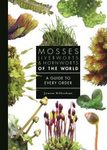![Trade and the Environment Trade and the Environment]()
Click to have a closer look
About this book
Contents
Customer reviews
Biography
Related titles
About this book
Establishes a powerful theoretical framework for examining the impact of international trade on local pollution levels and for developing an integrated treatment of the links between economic growth, liberalized trade and the environment. The authors find little evidence that developing countries will specialize in pollution-intensive products with further trade; also that pollution declines amid economic growth fueled by economy-wide technological progress, but rises when growth is fueled by capital accumulation alone.
Contents
Preface vii Chapter 1: The Trade and Environment Debate 1 1.1 Globalization and the Trade versus Environment Debate 1 1.2 Two Questions and a Preview of Our Answers 2 1.3 Our Method of Analysis 6 1.4 Plan of the Book 9 Chapter 2: Pollution in a Small Open Economy 12 2.1 Technology 16 2.2 Equilibrium along the Net and Potential Production Frontiers 26 2.3 Scale, Composition, and Technique Effects 45 2.4 Endogenous Pollution Policy 56 2.5 Conclusion 65 Chapter 3: Is There an Environmental Kuznets Curve? 67 3.1 Equilibrium Pollution and the Environmental Kuznets Curve 71 3.2 Sources of Growth 74 3.3 Income Effects 78 3.4 Threshold Effects 86 3.5 Increasing Returns to Abatement 97 3.6 Conclusion 104 Chapter 4: Trade Liberalization and Environmental Quality 107 4.1 Trade Frictions 110 4.2 Trade Liberalization with Rigid Pollution Policy 112 4.3 Trade Liberalization with Flexible Pollution Policy 123 4.4 The Political Economy Motive 132 4.5 Conclusion 139 Chapter 5: Pollution Haven Models of International Trade 142 5.1 Exogenous Policy Differences: Rigid Emission Intensities 146 5.2 Exogenous Policy Differences: Marketable Permit Systems 153 5.3 Endogenous Pollution Havens 158 5.4 Global Pollution and the World Composition Effect 164 5.5 Environmentally Friendly Pollution Havens 170 5.6 Northern and Southern Institutional Differences 171 5.7 Conclusion 183 Chapter 6: Factor Endowments, Policy Differences, and Pollution 187 6.1 Exogenous Policy: The Role of Factor Endowments 189 6.2 Endogenous Policy: Factor Endowments and Comparative Advantage 196 6.3 Correlated Characteristics: Being Rich and Capital Abundant 200 6.4 An Illustrative Example 206 6.5 Conclusion 213 Chapter 7: Is Free Trade Good for the Environment? An Empirical Assessment 215 7.1 Three Questions That Deserve an Answer 220 7.2 The Pollution Data 223 7.3 Deriving the Reduced Form 227 7.4 From Theory to Estimation 239 7.5 Empirical Results 250 7.6 Alternative Specifications and Theories 261 7.7 Conclusion 271 Chapter 8: Summary and Conclusions 275 8.1 Flexible Pollution Policy 275 8.2 Growth Is Not Trade 276 8.3 The Pollution Haven and Factor Endowments Hypotheses 277 8.4 Directions for Future Research 280 References 285 Index 291
Customer Reviews
Biography
Brian R. Copeland and M. Scott Taylor have coauthored numerous articles on trade and the environment in a variety of prominent journals. Copeland is Professor of Economics at the University of British Columbia. Taylor is Canada Research Chair in International, Energy, and Environmental Economics at the University of Calgary and a Research Associate at the National Bureau of Economic Research.
By: Brian R Copeland and M Scott Taylor
295 pages, Illus, tabs
Copeland and Taylor have opened the way to a better dialogue between economists and environmentalists. Their book will surely take its place on the shelves of trade economists and environmentalists. -- James Anderson Journal of International Economics [A] well-written book... As Copeland and Taylor make clear, there is a good deal of scope for additional research on the topic of trade and environment, and this book provides a great starting point for such research. -- Josh Ederington World Trade Review This book is systematically developed and well presented. -- Richard N. Cooper Environment This book takes 'trade and the environment' from toddling to a brisk walk and indicates that it has come of age as a subfield... [It] strives, very successfully, to link its theory to empirical work. -- Martin Richardson Economic Record


































